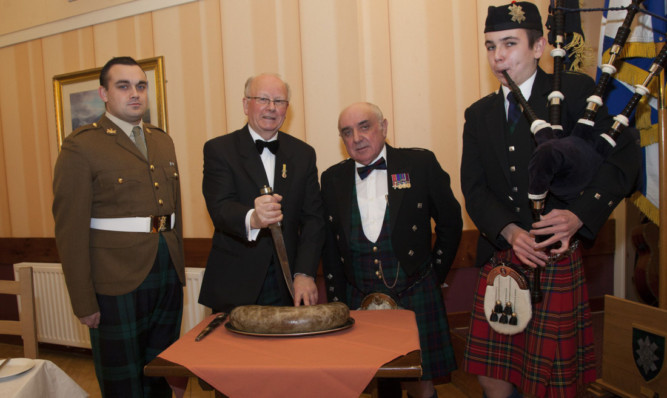Separated by generations, the bond between the Bard and the figure celebrated as Dundee’s forgotten war poet was marked in an important weekend Angus event.
Black Watch Association members from across Scotland gathered in Forfar for the organisation’s Burns Supper, with a leading regimental historian homing in on the connection between the nation’s most famous poet and Dundee-born Joseph Lee, who chronicled life in the trenches of the First World War.
Retired Black Watch Major Ronnie Proctor, from Kirriemuir, recounted Lee’s achievements as a soldier and poet in the Immortal Memory delivered to the Angus event, where BWA chairman Colonel Alex Murdoch was guest of honour.
Grandson of a soldier who fought in the Napoleonic Wars, Lee, was born some 80 years after the death of Rabbie Burns but Mr Proctor believes shared values connect the writing pair.
Although almost 40 when war broke out, Lee enlisted in the 4th Battalion of The Black Watch in 1914 and rose to the rank of sergeant, sending sketches and poems to Scotland from the front. He defended Burns in a spat with poet laureate Robert Bridges, who had questioned the literary value of the Bard’s work.
Mr Proctor said of Lee: “He wasn’t a man who gave the top officers’ view of what was going on but the soldier’s view and I think there was a social affinity between him and Burns.
“Burns was very much for the common man and so was Lee. Like Burns before him, I believe Joseph Lee had a very good grasp of the social mores of Courier Country, which is synonymous with Black Watch country.”
